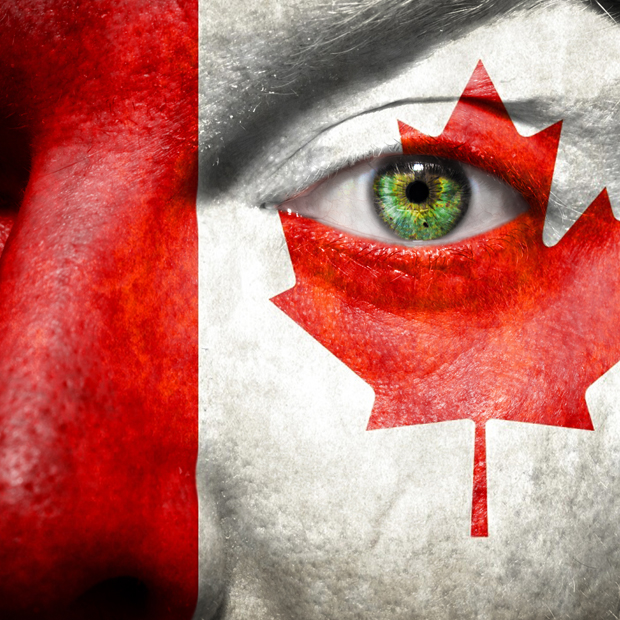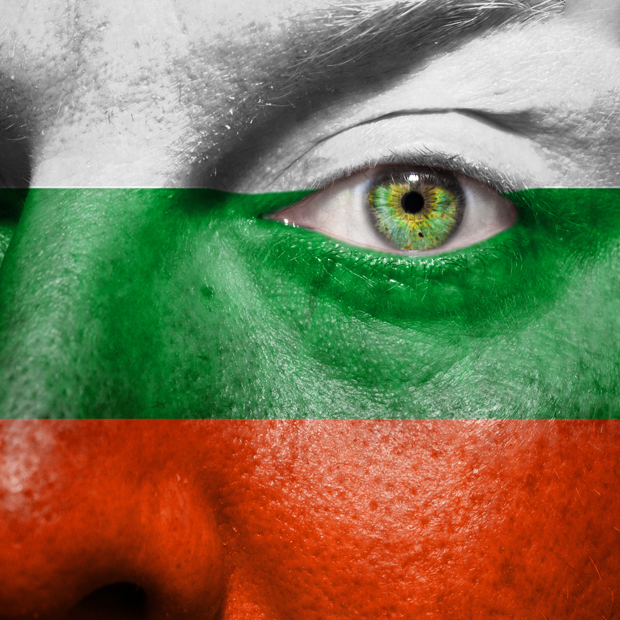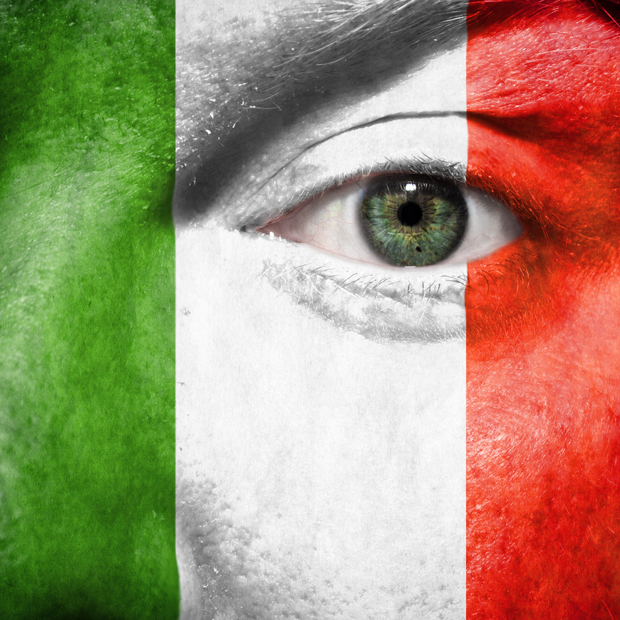Index relies entirely on the support of donors and readers to do its work.
Help us keep amplifying censored voices today.

(Photo illustration: Shutterstock)
Despite having a generally positive free expression record, Canada has, in recent years, taken some regressive steps, driven by court decisions that weakened confidentiality for journalists’ sources, obstructions to reporting during Quebec’s student protests and the introduction of a bill, which was later withdrawn, but would have allowed the government to monitor Canadians in real-time without the need for a warrant.
Conservative Prime Minister Steven Harper’s government has been criticised by activists for its tightening of access to information and slow response time to requests. Harper is accused of banning government-funded scientists from speaking to reporters about climate research. The country’s 30-year-old Access to Information Act (ATIA) is also highlighted as an obstacle.
Canada’s Provincial governments exercise strong influence on the rights of the media and individuals. During the so-called “Maple Spring” in 2012 Quebec passed an emergency law aimed at stifling student protests against tuition increases.
Media Freedom
Cases challenging source confidentiality and various proposed bills have given free expression campaigners pause about the state of media freedom.
Currently, there are concerns about a move to foster tighter regulation of state-owned Crown corporations which would have potentially chilling effects on the Canadian Broadcasting Corporation and Radio Canada. Bill C-60 “gives the Treasury Board the right to approve Crown Corporations’ negotiating mandates, have a Board employee present at the negotiations between unions and management, and to approve the new contracts at the end of the process.“ The worry is that C-60 would lead to a deterioration of the arms-length relationship between the government and CBC, the country’s independent public broadcaster. A group of free expression organisations are calling for the CBC to be exempt from the Bill.
Canadian Journalists for Free Expression’s 2012-2013 report outlines a systemic failure of the Canadian government to respond to requests for information, particularly around climate change research. The report details that some government-funded scientists must seek permission from the country’s Privy Council before speaking to the press – even in cases where the research is already published. As CJFE points out, delayed information often leads to journalism denied. The group singles out the Department of Fisheries and Oceans for seeking to muzzle its scientists.
Two 2010 court cases have dealt with journalistic privilege head on. While Canada’s Supreme Court Justices have stopped short of offering blanket confidentiality, they have stressed that compelling journalists to reveal sources should be extraordinary and not the rule, recognizing that investigative reporting plays an important role in society. Instead, tests should be applied on a case by case basis. In addition, the court ruled that journalists have the right to publish confidential material from a source — even when the source has no right to divulge the information or has obtained it by illegal means.
Digital Freedom
With widespread access and improving infrastructure for native groups in the country’s far north, Canada’s digital freedom environment can be seen as healthy. However, government efforts to monitor online activity in the name of security, a growing concentration of bandwidth ownership and outdated laws on privacy have troubling implications.
Digital freedom has risen to the forefront of concerns in Canada. Introduced in 2012, Bill C-30 would have allowed real-time surveillance of Canadians. The law was attacked as an unprecedented intrusion in the online life of Canadians and would have forced internet providers to install costly systems to track web usage. After being recast as a proposal meant to protect children from exploitation, the bill was eventually withdrawn in February 2013.
In February 2013, Canada’s government shelved Bill C-30, the Lawful Access Bill, in the face of widespread condemnation. Among other things, the proposed law would have allowed warrantless online surveillance. While the government presented the law as a child protection measure, opponents focused on the population-wide intrusion into the online lives of all Canadians. The bill would have also forced communications companies to undertake a costly implementation of technologies to monitor and record internet traffic. The abandonment of the bill was hailed as a victory by free expression advocates.
Canada’s Canada’s Personal Information Protection and Electronic Documents Act, which is an outdated 2001 law on consumer privacy is also a threat to digital freedom. The country’s top official on privacy, Jennifer Stoddart, has asked the government to give her the power to fine companies found to be in breach of rules. At present, companies are not required to disclose personal data breaches. Bill C-12, would have amended the law, but failed to move forward after its second reading in the Canadian Parliament. However, that proposal also drew criticism from open internet activists because it would give police access to user information without judicial oversight or notification to the affected party.
Artistic freedom
Artistic freedom in Canada is protected by The Constitution Act of 1982, which contains the Canadian Charter of Rights and Freedoms.
Artistic endeavours often encounter difficulty in Canada due to a lack of available stable funding from the private sector. This can result in a reliance on federal or provincial funding, which means that governments can try to rein in artistic work they feel is controversial by threatening to withdraw funding.
In 2010, the government pulled funding from the Toronto theatre and music festival SummerWorks, after it displayed a play the government felt glorified terrorism. SummerWorks efforts were seriously damaged as a result — government funding accounted for 20 percent of the festival’s finances. Funding was later restored in 2012.
The Ontario Film Review Board, a governmental body once known as the Board of Censors when established in 1911, answers to the Minister of Consumer Services. Its activities are supported by the Film Classification Act, 2005.
In April 2007, after much dispute amongst the artistic community in Canada, MPs removed the artistic merit defence from Canada’s Criminal Code. The defence was originally granted by the Supreme Court of Canada in 2004, but Conservative MP Pierre Lemieux attempted once again to table the Private Member’s Bill C-430, which would remove artistic defence and replace it with public good.

(Photo illustration: Shutterstock)
While the revelations around mass surveillance by the US and some European governments were reported by Bulgaria’s media, the country’s focus in recent months has been the fallout from the country’s elections.
After a polarising election in May, tens of thousands went out to protest against the new Bulgarian government and staged daily rallies for over nearly two months. As a result, the significance of the NSA revelations was not enough to elevate it above domestic political skirmishes.
The Snowden affair had all the ingredients for the media sensation other European countries experienced: a huge cover-up affirming most citizens’ suspicions about governments spying on them, a global chase through Hong Kong and Moscow (with possible sequels in Vienna, Havana and Caracas) and – most importantly – a local context.
Bulgarians, long sensitive about government surveillance after nearly five decades of totalitarianism, had an eavesdropping scandal of their own as recently as in April when a former interior minister was accused of wiretapping a host of political figures, businessmen and journalists. According to one opinion poll conducted in April, 73% of Bulgarians believed that their government had been practicing illegal wiretapping.
Thus, the interest for the Snowden affair among the Bulgarian public was a given. And the media promptly reacted, assigning it the expected prominence among their foreign affairs coverage, if not the front pages which the scandal got in Germany, the UK or France.
“Revelations about the NSA activities were covered in Bulgaria, but did not become a central topic for the media as they of coincided with the anti-government protests,” said Nelly Ognyanova, a leading Bulgarian media law expert and media analyst. ‘However, Bulgarian media paid special attention to the aspect of the EU – US relations in the light of the scandal,” she said.
Media in Bulgaria, which joined the European Union in 2007, covered the reaction in Brussels and in major European capitals and especially in Berlin where the topic was becoming a battleground in light of the German general elections in the fall. Bulgarian media also focused on the fact that the NSA scandal was threatening to derail the negotiations for a major free trade agreement between the EU and the US.
End mass surveillance! Sign the petition
EU leaders: Stop mass surveillance | Лидеры Евросоюза: прекратите массовую слежку! | Líderes europeos: Paren la vigilancia masiva | Dirigeants européens: Arrêtez la surveillance de masse! | Europas Staats-und Regierungschefs: Stoppen Sie die Massenüberwachung! | Liderzy Unii Europejskiej: zaprzestańcie masowej inwigilacji! | Лидери на ЕС: Cпрете масовото наблюдение
Since there are only a handful of Bulgarian foreign correspondents, local media mostly quoted international titles like The New York Times, the BBC, The Guardian and Der Spiegel. The Snowden revelations also did not have (obvious) Bulgarian links – when information emerged that the US was secretly wiretapping foreign embassies on American soil, the weekly “Capital” tried to contact the Bulgarian mission in Washington but was referred to the foreign ministry in Sofia which, in turn, had no comment on the case.
As for Snowden himself, Bulgarian media painted a mostly neutral portrait of the whistleblower.
“Bulgarian media were rather sticking to the facts without taking a judgmental position on Snowden, but without making him look like a hero as well,” said Ognyanova. “In Bulgaria there was no discussion like the one that took place in other countries about whether Snowden is a hero. Against the backdrop of the very important information that he revealed, however, the media treated him with a degree of sympathy for his civil courage.”
Given the anti-government protests and the heightened domestic political situation, the political and social media reaction to the Snowden affair appeared mostly muted. The Bulgarian social networks – an otherwise vibrant community of some 2.5 million people – was mostly preoccupied with the anti-government protests which, in fact, originated mostly on Facebook walls and Twitter profiles and later transferred to the streets of Sofia and other major cities.
One small political party, the Greens, issued a statement in July calling the revelations “a serious attack on civil rights and the foundations of democracy” and asking the Bulgarian government to offer asylum to Snowden.
“The Greens party expresses our gratitude to Edward Snowden for his courage and for his service to EU citizens,” the statement said.
According to Ognyanova, the media law expert, it is important to draw conclusions from the NSA affair.
“Either in the free trade pact or in another agreement, there must be a provision to protect the personal data and privacy of European citizens,” she said. “It is high time for the EU to have their own clouds and to not provide our information to companies under the jurisdiction of countries outside the European Union,” she said. “I expect this from my government and from the EU, being its citizen.”

(Photo illustration: Shutterstock)
The situation for freedom of expression in Italy is curtailed by a lack of media plurality, restrictive media legislation and a digital sphere restricted by a strict privacy law. The new parliament is challenging the overt politicisation of the media, yet much needs to be done before Italy meets its international obligations to protect freedom of expression.
Freedom of expression is guaranteed through Article 21 of the Italian constitution. However, civil and political rights have been in decline in recent years due to corruption and restrictions on civil society. Restrictive NGO legislation has curtailed the space for Italian civil society with NGO status only given to organisations recognised by the Foreign Affairs Department under Law 49/1987 and an overdependence on public funding that has been described as ‘a burden and a limitation for Italian NGOs’. A Council of Europe expert council also highlighted the government’s ability to temporarily suspend NGOs for a broad range of offenses. This has reduced Italian citizens’ right to freedom of association and expression.
Italy’s defamation laws although low-cost contain archaic provisions: defamation is still a criminal offence and there are special protections for politicians. Italian law contains provisions penalising insult to the Republic, constitutional institutions, the armed forces and the Italian nation, which should be repealed. To ‘offend the honour’ of the President (and the Pope) is also a criminal offence, with a recent conviction. Italian law criminalises offenses that are motivated by racial, ethnic, national, or religious bias, but excludes gender or sexual orientation. This inconsistency in hate speech provisions has been criticised as discriminatory, while the law itself is overly broad and may chill freedom of expression.
Media freedom
Italy is amongst the lowest ranked of EU member states in media freedom indices.
The limited media plurality in Italy is the most significant restriction on media freedom. Italian broadcasting has long been dominated by a powerful duopoly between private owner Mediaset and public owner RAI (Radiotelevisione Italiana), a situation the Council of Europe has dubbed the ‘Italian anomaly’. Despite attempts to reform the state of the media through the Gasparri and Frattini Laws of 2004, there are no restrictions on direct media ownership by political actors, and there are no requirements for media to be politically independent. AgCom also found that in Italy the two largest TV stations received over 79% of total TV advertising spend.
A study undertaken in 2012 for Italian Regulator AgCom found television plurality is limited compared to radio and newspaper markets. The most concentrated market was online. The low newspaper readership (only 20% of the population) and the lack of online news media in comparison with other G8 states compounds the TV monopoly and the lack of plurality.
A number of laws constitute big challenges to press freedom in Italy. On 10 June 2010, the Italian Senate passed a controversial wiretap law on electronic surveillance. The bill had the potential to severely restrict pre-trial reporting, as it could hinder the publishing of documents related to court proceedings or investigations before the start of a trial with the possibility for fines of up to €450,000. In protest, TV and internet journalists staged a news blackout strike in July 2010 and Wikipedia disabled its Italian website.
There have also been reports of individual reporters being targeted. On February 2011, police searched the apartment of Il Giornale journalist Anna Maria Greco, who had written an article on a Milan prosecutor. In August 2012 Orfeo Donatini and Tiziano Marson, of newspaper Alto Adige were sentenced to four months in prison and fined 15,000 Euros for libel, for alleging that local politician Sven Knoll had taken part in a neo-Nazi summit, despite the fact that the story was based on a police report.
Digital freedom
Italians have generally been slower to embrace new technology and the internet than comparable European countries, with the latest figures putting internet penetration at 56.80%.
The country has laws and practises on data retention and surveillance, which pose a threat to privacy and freedom of expression. There have been instances where the police have practised surveillance on entire internet service providers (ISPs). In 2005, an Italian collective ISP Austistici/Inventati who host a wide range of civil society organisations discovered a police backdoor to their server that compromised their client’s privacy.
In 2010, three Google executives were convicted of violating Italian privacy laws. It was a watershed case – the first to hold Google staff directly responsible to for content posted on their system setting a negative precedent for internet intermediaries. Watchdog groups raised concerns that if third parties, like internet service providers and search engines can be prosecuted based on content they have not authored it could make them more likely to censor, block and take down content. This could have a chilling effect in freedom of expression online.
Italy also has some of the world’s strictest legislation on copyright, in particular file sharing. The Urbani law passed in May 2004 and included possible sentences of up to three years in prison or fines of some 200,000 Euros for breach of copyright.
The latest Google transparency report (July-December 2012) stated that Italy made 111 takedown requests in total, below comparable countries such as the UK and France, while the latest Twitter report (July 2012) stated that Italy made less than 10 user information requests.
Arts
Italy has a vibrant artistic scene, and freedom of expression in the arts is protected in the constitution. However artistic freedom has been chilled by a number of prosecutions for satirical comment and anti-religious art that has impacted on free expression.
Catholicism is no longer the official religion of Italy, but religious sensitivities remain that chill free speech. In 2008, comedian Sabina Guzzanti was charged with insulting the pope, after making jokes about him at a left-wing political rally. Political satire is also chilled. Silvio Berlusconi had also previously threatened the comedienne with a €20million lawsuit after she mocked him during her TV show on RAI. The show was cancelled after two episodes.
In 2001, another comedian Daniele Luttazzi stated in an interview in with journalist Marco Travaglio that “you are a free man in a shitty country”, referring to Italy and the institutions that govern it. For this he was sacked by RAI, and sued for “insult to the Nation”, under article 291 of the criminal code. He was acquitted in October 2002, but he was never re-employed by RAI.

Andrei Karelin
A theatre playwright and a former worker from the Minsk Automobile Plant were found guilty of using offensive language online in Belarus.
Andrei Karelin, a playwright, was sentenced to an administrative fine of 10 million Belarusian roubles (about £725) for two comments he had made on a forum of a popular Belarusian internet portal TUT.by. The comments reflected his negative attitude toward Belarusian police.
According to Karelin, he had to call the police when he was attacked and beaten in Minsk on 18 May this year, but said he did not receive proper assistance, and was offended by officers instead. Among other words he chose to describe the officers on the forum were “bastards” and “boors”. He also said they were “fat and imposing” and concluded that “all normal citizens hate” the police.
A district court in Minsk had two hearings on the case (on 11 July and 26 July) and sentenced Karelin to fines for “insulting an officer on duty”, despite the fact the allegedly insulted officers admitted at court they had not seen his online comments themselves.
The playwright denies his guilt saying he did not insult anyone, but merely expressed his indignation at lack of professionalism of Belarusian police officers. He started a website to crowd-fund the fines he calls “enormous” as they are equal to 3 months of his salary.
Another Belarusian, Ruslan Mirzoev, got 7 days of administrative arrest for videos he posted. He became popular last year after he started posting online videos about daily life of workers of Minsk Automobile Plant (MAZ), one of the biggest enterprises in Belarus. Mirzoev was finally fired from the plant in July 2013, but he continued production of his videos.
Ruslan started his own video project, Chronicles of a District («Хроники района»), on YouTube, and made two videos about drug addicts, a prostitute and alcoholics, who live in Kurasoushchyna, the district of Minsk where he lives. On 9 August he was detained and sentenced to seven days of administrative arrest for using obscene words in those videos.